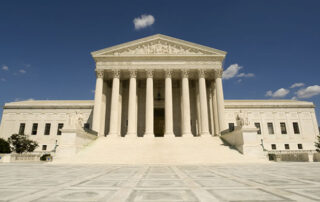
As reported in a front page story of today’s Washington Times in September of 2009, internationally respected whistleblower, Bunnatine Greenhouse, has issued an appeal to the U.S. Senate to pass strong protections for all federal employees. Mrs. Greenhouse was the only major Bush Administration executive to challenge the Halliburton “no bid” Iraq reconstruction contracts. Ms. Greenhouse wrote a letter to Congress. “We urge every American to read Bunny’s letter and to TAKE ACTION!,” said Stephen M. Kohn, NWC Executive Director. “This is not a Democrat or Republican issue. This is not a partisan issue. This is an issue that goes to the heart of accountability and oversight.
It is estimated that almost 10% of the U.S. annual budget is paid to persons and/or companies defrauding the government. Some overcharge the government for products sold directly to the government, while others engage in government contract fraud, defense contractor fraud, Medicare fraud, Medicaid fraud, or other public benefit fraud. Any situation in which the government has been defrauded should be closely examined. To minimize fraud committed against the government, Congress passed the False Claims Act.
According to an annual report issued by the Department of Justice, approximately $1.2 billion was recovered in whistle blower claims and lawsuits filed by private citizens through their lawyers in the fiscal year October 1, 2000 to September 20, 2001, with more than $210 million of those funds being awarded to whistleblowers themselves. The amount is continuing to grow. It is estimated that $3.1 billions was collected from businesses defrauding the government in the year 2005.
The False Claims Act was Amended and strengthened in 1986. The amendments broaden the definition of fraud to include submitting claims with deliberate ignorance or reckless disregard for the truth of statements made in the claim for U.S. Government spending or funds upon which the fraud claim is based. The burden of proof that must be met by the qui tam attorney is a preponderance of the evidence, that is that the evidence presented is more likely true than not. The 1986 amendments included provisions to protect the federal whistleblower from retaliatory action by their employer.
A person who has knowledge of fraud against the government may retain a lawyer and file a court case under seal against the company or person committing the fraud. Following the filing of a lawsuit, the United States attorney has sixty days to investigate the allegations. The U.S. Government intervenes in approximately 25% to 33% of all whistleblower cases. If the U.S. attorney finds that fraud was committed, then the U.S. Government takes control of the case and either enters into a settlement or pursues the lawsuit itself.
If the government fails to intervene, the private citizen may pursue the action independently. If the lawyers are successful in proving fraud against the government, substantial penalties can be assessed, which can be up to 3 times the amount the defrauder stole from the government (the tax payers). Out of damages imposed the whistleblower may receive between 10% and 30% of the recovery, in some cases recovery could be millions of dollars.
NACOL LAW FIRM P.C.
8144 Walnut Hill Lane
Suite 1190
Dallas, Texas 75231
972-690-3333
Office Hours
Monday – Thursday, 8am – 5pm
Friday, 8:30am – 5pm
OUR BLOGS
SEARCH
JOIN OUR NETWORK

Attorney Mark A. Nacol is board certified in Civil Trial Law by the Texas Board of Legal Specialization



